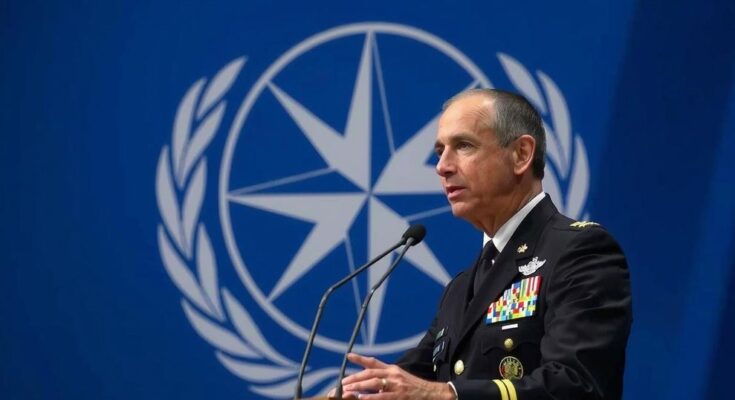NATO Secretary-General Mark Rutte warned President-elect Trump that a weak peace agreement regarding Ukraine could embolden countries like China, Iran, and North Korea. He articulated that such a deal harms global security and could allow authoritarian regimes to collaborate more openly. Following discussions on Ukraine, the importance of NATO membership was reiterated amidst the backdrop of evolving U.S. foreign policy perspectives.
Mark Rutte, NATO Secretary-General, has cautioned U.S. President-elect Donald Trump against imposing a hastily agreed upon peace settlement on Ukraine, warning that such an action could empower adversarial nations including China, Iran, and North Korea. During an interview with The Financial Times, Rutte stated that a inadequate peace agreement would not only jeopardize European security but also embolden authoritarian regimes, particularly those of Russian President Vladimir Putin, Chinese President Xi Jinping, North Korean leader Kim Jong-un, and Iranian officials. He expressed concerns about the potential ramifications of a weakened Ukraine, suggesting that it would create an opportunity for these nations to collaborate more closely across military and economic sectors.
Rutte argued that any agreement that compromises Ukraine’s sovereignty could exacerbate security threats to the United States and Europe. His comments came in light of a recent meeting on November 23, during which Trump and his foreign policy team deliberated on these pressing concerns. In a related political landscape, UK Prime Minister Starmer acknowledged the likelihood of a negotiated settlement to the Russo-Ukrainian conflict, just hours after President Biden sanctioned a new military aid package for Ukraine. Despite this, Trump’s advisors emphasized that the conflict should be regarded primarily as a European matter, advocating for a focus on countering China and Iran in U.S. foreign policy.
The ongoing conflict between Russia and Ukraine continues to evoke widespread international concern, particularly regarding its implications for global security. The unity among authoritarian regimes poses significant risks not just to regional stability but also to broader international relations. Ukraine’s pursuit of NATO membership remains pertinent, especially in light of the failed Budapest Memorandum and the ongoing hostilities. Understanding NATO’s strategic positioning and the dynamics at play with adversarial nations is crucial in evaluating the impact of a potential peace agreement on the conflict’s resolution.
In summary, Mark Rutte’s warnings regarding a potential peace deal for Ukraine underscore the complexity of geopolitical stability amid authoritarian regime alignments. An inadequate settlement could inadvertently strengthen adversaries such as Russia, China, Iran, and North Korea, posing heightened threats to both European and American security. As political discussions evolve, keeping Ukraine’s sovereignty and NATO aspirations central to the negotiations appears essential for ensuring lasting peace and security.
Original Source: euromaidanpress.com




